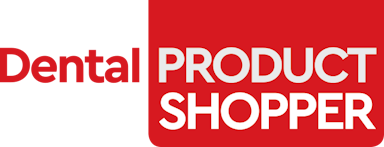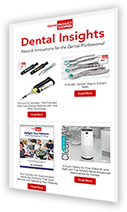Most breakdowns in infection control and prevention protocols are the result of a lack of knowledge. Frequently, if a practice is not following CDC infection control guidelines, it is not due to negligence, but rather a lapse in their infection prevention education.
As a dental administrative chair who oversees operations in an 18-chair dental clinic, Emily Boge, RDH, has seen this too often. At Boge's school, she teaches students the ins and outs of infection control in dentistry.
“When clinicians do not complete the full cleaning cycle, products do not reach their full effectiveness.”
- Emily Boge, CDA, RDH, MPA
“In 2003, the CDC released their recommendations for infection control in a dental setting, and many state boards have adopted those recommendations as rules," said Boge. "I’ve lectured on these infection control protocols for quite some time."
In her line of work, Boge sees various common mistakes when students clean and disinfect surfaces in the clinic. “Most often, I see people not using the ‘wipe, discard, wipe’ method. This is really important, because you have to wipe to remove the bioburden and then wipe again to disinfect,” she explained. “When clinicians do not complete the full cleaning cycle, products do not reach their full effectiveness."
Boge has used many brands for her infection control needs, both in practice and in education, including SciCan's Optim 33TB disinfectant. She also enjoys using Dentsply Sirona’s Oxivir 1. The Oxivir 1 wipes have fewer additives than many other products, making them gentler on the skin if you make direct contact with them.
At Boge’s school, they use barriers on virtually everything, including light switches, drawer handles, and more. “If you teach students to prioritize infection control to that extent, then hopefully they'll continue to do it without even thinking,” she explained.
Boge uses Henry Schein brand barriers because affordability is essential to a big operation. “With the size of our clinic, it's really important that we stay cost effective,” she said.
SURFACE DISINFECTANTS
SciCan’s OPTIM 33TB Wipes have exceptional surface cleaning and disinfecting power in a nontoxic, environmentally friendly product. These wipes offer a more superior clean and broad-spectrum sanitizing in a single product, a great environmental profile, and an MSDS health hazard rating of 0.
and an MSDS health hazard rating of 0.
Monarch Surface Disinfectant Wipes from Air Techniques provide an effective and simple way to clean and disinfect impermeable surfaces in 1 minute. These wipes are compatible with surfaces in the dental office and fight against odor-causing bacteria. Tests have proven that this product is an effective bactericide, virucide, tuberculocide, and fungicide.
A ready-touse, prewetted disinfectant, Oxivir 1 Wipes from Dentsply Sirona are formulated to deliver broad spectrum disinfection in 1 minute or less. Oxivir 1 harnesses the cleaning power of hydrogen peroxide and is designed to penetrate the toughest soils. This formula uses patented AHP technology.
DisCide Ultra from Palmero Health Care is a 1-step disinfectant that kills 99.99% of germs and 21 deadly pathogens in 1 minute or less. DisCide Ultra is available in liquid and spray formulations and towelettes, and it doesn't corrode or stain operatory surfaces.
Patterson's pdCARE Wipes are disposable disinfecting towelettes for cleaning hard, nonporous surfaces in healthcare settings such as dental offices, laboratories, and clinics. They are proven effective as a tuberculocide, bactericide, virucide, and fungicide in a 2- to 3-minute window.
healthcare settings such as dental offices, laboratories, and clinics. They are proven effective as a tuberculocide, bactericide, virucide, and fungicide in a 2- to 3-minute window.
Henry Schein’s MaxiWipe Germicidal Disposable Wipes are bactericidal, tuberculocidal, and virucidal. They kill TB and RSV in 1 minute; HBV, HCV, HIV-1, rhinovirus, MRSA, VRE, influenza A (H1N1), and more in just 2 minutes.
BARRIERS
The FDA recommends using barriers on composite restorative guns to reduce contamination, and the CDC recommends barriers be used on clinical contact surfaces, as well as any and all equipment that may come into contact with patients during procedures.
TrollDental’s TrollBarriers for composite guns are both soft and strong. This product features a simple application of applying the barrier over the gun, discarding the cover after use, and applying a new barrier for the next patient. Using Directa's TrollBarrier to cover the composite gun between patients cuts down on turnaround time and can prolong the life of the device.
barrier over the gun, discarding the cover after use, and applying a new barrier for the next patient. Using Directa's TrollBarrier to cover the composite gun between patients cuts down on turnaround time and can prolong the life of the device.
Snuggies custom-fit sensor sleeves from Flow Dental protect equipment and patients with a snug fit. The sleeve has a simple peel-and-stick tab that adjusts to sensors of any size, shape, or thickness. Its design eliminates excess plastic and keeps the sensor from sliding around, enhancing its ease of use.
The first of its kind, Pac-Dent’s Armor Air/Water Syringe Tip + Sleeve Combo is a 2-in-1 solution that minimizes preparation time. This syringe–tip–sleeve system features a four-air-core tip to provide precise and reliable delivery of air and water. Clinicians can replace both the syringe tip and sleeve in a single step, and the nonslip sleeve is made of copolymer film to enhance infection control.
The Unipack Syringe Sleeves from Dukal are disposable plastic sleeves for use with the 3-way syringe, HVE, or saliva ejector valves. These sleeves feature a convenient, prepunched opening for easy application and effectively cover equipment with a near-custom fi t.
Premier Dental’s Sleeve-It disposable barrier sleeves provide proven protection against cross-contamination. Made from high-grade durable material, Sleeve-It barriers have passed extensive testing to ensure patient safety. Sleeve-It barriers slide over syringe dispensers with a precut opening for the dispensing tip.
For use with radiological sensors, the R.S. Barriers from Steri-Shield are snug-fitting elastic barriers that fit all popular sensors on the market. With these barriers, you can ensure infection control for your patients while protecting your equipment from corrosive wipes or sterilizing solutions. This product is available in both non-latex and a natural rubber latex.
Air Techniques’ ScanX Barrier Envelopes feature a unique envelope design that allows clinicians to tear open the package in a direction that minimizes cross-contamination. The envelopes provide a defense against contamination that allows PSP sensors to be reused, which helps reduce operatory waste.
Infection control is one of the most essential things that dental students will learn in their training. However, infection control protocols are only as good as the products used to execute them. These surface wipes and barriers can help any clinician master infection control and keep their team and their patients safe.





